Residency preceptors
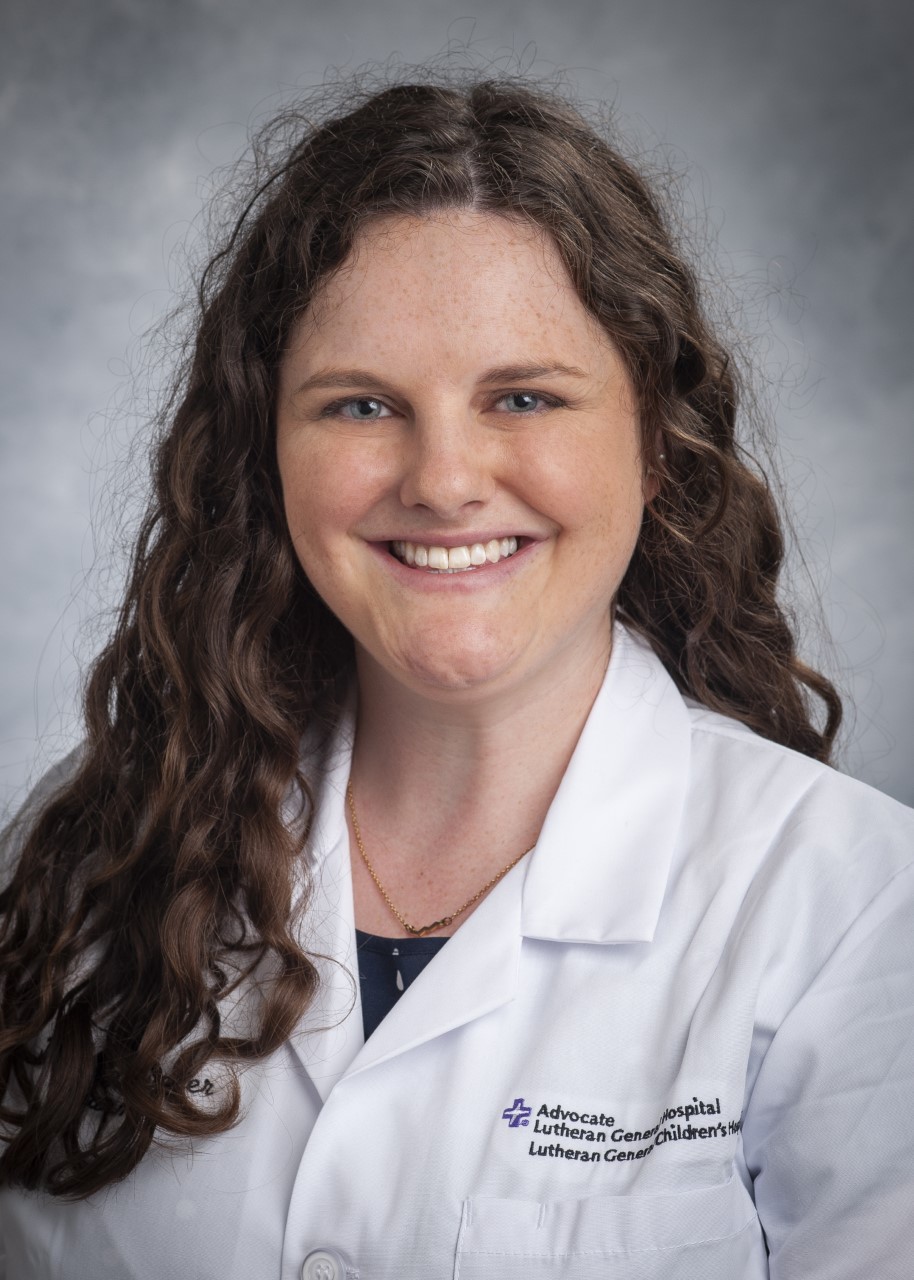
Jill Argotsinger, PharmD, BCIDP
Title: PGY2 Infectious Diseases Residency Program Director; Clinical Pharmacy Specialist, Infectious Diseases; Advocate Lutheran General Hospital
Education: PharmD, Butler University, 2018
Training: PGY-1, Conemaugh Memorial Medical Center, Johnstown, PA, 2018 - 2019; PGY2 Infectious Diseases, Advocate Lutheran General Hospital, Park Ridge, 2019 – 2020
Practice Area: Infectious Diseases, Antimicrobial Stewardship
Research Interests: multi-drug resistant gram-negative infections, Pharmacokinetics/pharmacodynamics of antimicrobials, antimicrobial stewardship and resistance
Email: jill.argotsinger@aah.org
Infectious Disease Learning Experience Description: The Adult Infectious Diseases rotation is an eight-week learning experience designed for residents to expand their ID knowledge and apply clinical and problem-solving skills necessary to assess, evaluate, and develop empiric pharmaceutical care plans, and provide antimicrobial stewardship recommendations for patients with suspected or documented infectious disease states to the Adult Infectious Diseases team in order to optimize a patient's antimicrobial regimen.
Antimicrobial Stewardship Learning Experience Description: The Adult Antimicrobial Stewardship rotation is a six-week learning experience designed to introduce residents to stewardship principles based on the IDSA guidelines as well as incorporate the CDC core elements in clinical practice. This learning experience involves evaluating blood culture reports, restricted medications and other stewardship-related projects based on institutional needs. The rotation cultivates leadership, time-management and communication skills as the resident is heavily involved in longitudinal stewardship projects and presentations.
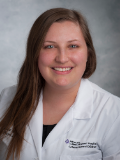
Jessica Miller, PharmD, BDICP
Title: Clinical Pharmacy Specialist, Infectious Diseases; Advocate Lutheran General Hospital and Advocate Children's Hospital
Education: PharmD, St. Louis College of Pharmacy, 2016
Training: PGY1, Advocate Lutheran General Hospital, Park Ridge, IL, 2016-2017; PGY2 Infectious Diseases, Advocate Lutheran General Hospital, Park Ridge, IL, 2017-2018
Practice Area: Infectious Diseases, Antimicrobial Stewardship
Research Interests: antimicrobial stewardship, rapid diagnostics, antimicrobial resistance, multi-drug resistant gram-negative organisms
Email: Jessica.miller@aah.org
Stewardship and Infectious Disease Learning Experience Description: The Pediatric Handshake Stewardship and Infectious Diseases rotation is a required 6-week learning experience designed to introduce residents to antimicrobial stewardship principles based on the IDSA guidelines and CDC core elements as well as develop the resident's clinical knowledge and skills in providing optimal evidence-based pharmaceutical care to pediatric patients on the infectious diseases service. The resident will have the opportunity to become an integral member of the pediatric infectious diseases multidisciplinary team. This learning experience involves three weeks of handshake stewardship rounds and three weeks of pediatric infectious diseases consultation rounds.
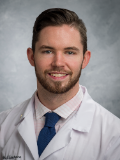
Erik LaChance, PharmD, BCIDP
Title: Clinical Pharmacy Specialist, Infectious Diseases; Advocate Illinois Masonic Medical Center
Education: PharmD, University of Connecticut, 2016
Training: PGY1, NorthShore University HealthSystem, Evanston, IL, 2016/17; PGY2 Infectious Diseases, Advocate Lutheran General Hospital, Park Ridge, IL, 2017/18
Practice Area: Infectious Diseases, Antimicrobial Stewardship
Research Interests: antimicrobial stewardship, antimicrobial resistance, rapid diagnostics, Clostridiodes difficile infections
Email: erik.lachance@aah.org
Infectious Disease Learning Experience Description: The Infectious Diseases, HIV focused learning experience is a 2-4 week elective learning experience designed to allow the resident to build upon his/her infectious diseases knowledge while focusing on human immunodeficiency virus (HIV) and its associated manifestations and complex therapy regimens. The resident will have the opportunity to participate in the care of both hospitalized and ambulatory patients so that acute as well as chronic management issues may be recognized.
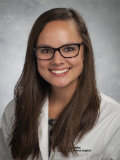
Amanda Paige Carmichael, PharmD, BCIDP
Title: Clinical Pharmacy Specialist, Infectious Diseases; Advocate South Suburban Hospital and Advocate Trinity Hospital
Education: PharmD, University of Georgia College of Pharmacy, 2017
Training: PGY1, Spartanburg Regional Healthcare System, Spartanburg, SC, 2017-18; PGY2 Infectious Diseases, Advocate Lutheran General Hospital, Park Ridge, IL, 2018-19
Practice Area: Infectious diseases, antimicrobial stewardship
Research Interests: Antimicrobial stewardship, antimicrobial resistance, Clostridioides difficile infection, antibiotic allergies
Email: amanda.hughes2@aah.org
Infectious Disease Learning Experience Description: The Community Antimicrobial Stewardship rotation is a four-week learning experience designed to introduce residents to stewardship principles at a community hospital based on the IDSA guidelines as well as incorporate the CDC core elements in clinical practice. This learning experience involves evaluating targeted antimicrobials (e.g. restricted antimicrobials, broad-spectrum antimicrobials, etc.), blood culture reports, and other stewardship-related projects based on institutional needs.
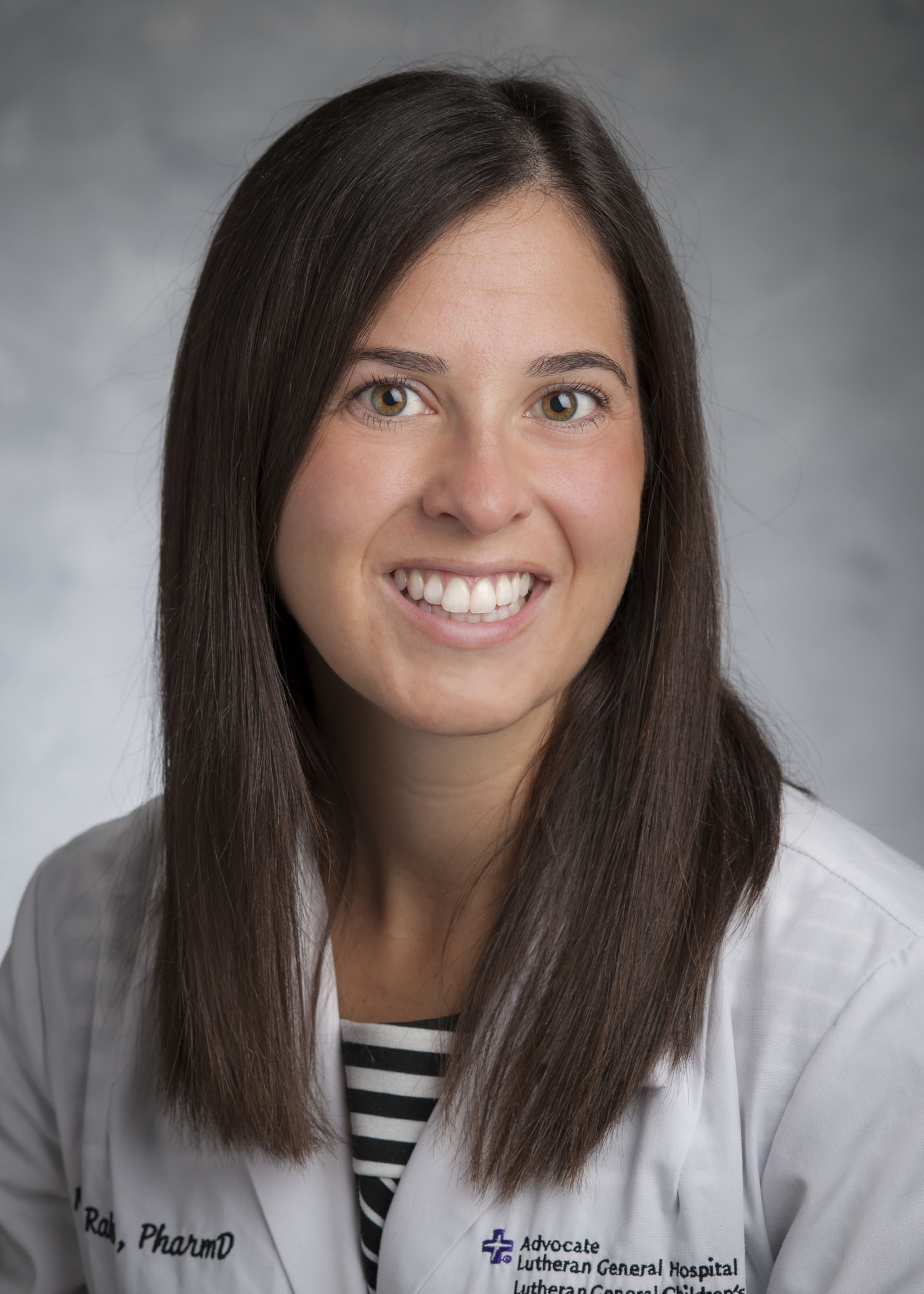
Nicole Gockenbach, PharmD, BCPPS
Title: PGY-1 Residency Coordinator, Clinical Pharmacy Specialist, Pediatric Hematology-Oncology
Education: Pharm.D., University of Iowa, 2012
Training: PGY1, Advocate Lutheran General Hospital, 2013; PGY2 Pediatrics, OSF St. Francis Medical Center – Children's Hospital of Illinois, 2014
Practice Area: Pediatric Hematology Oncology
Research Interests: Prevention and management of chemotherapy-induced toxicities, medication education, drug level monitoring
Email: nicole.gockenbach@aah.org
Pediatric Hematology/Oncology Learning Experience: The learning experience allows the resident to build upon information acquired in the resident's didactic education and practice skills needed for patient care, with emphasis on demonstrating an understanding of common hematologic and oncologic diagnosis and treatment. Common diagnosis consist of, but are not limited to: leukemia, lymphoma, retinoblastoma, neuroblastoma, sarcoma, brain tumors, neutropenia, thrombocytopenia, and anemia. The resident participates in daily bedside rounds and develop patient-specific, evidence-based therapeutic plans. In addition, the resident presents 1-3 topic discussions weekly and provides education to patients/families, and through in-services or formal presentations to pharmacists, physicians, and nurses.

Karen Caylor, PharmD, BCPS
Title: Clinical Pharmacy Specialist, Pediatric Critical Care
Education: Pharm.D., University of Illinois at Chicago, 2007
Training: PGY-1, Advocate Lutheran General Hospital, 2008; PGY-2 Pediatrics, University of Illinois at Chicago, 2009
Practice Area: Pediatric Intensive Care Unit
Research Interests: Vancomycin dosing and kinetics in pediatrics, dexmedetomidine use in PICU patients, and opioid and benzodiazepine withdrawal in children
Email: karen.chincaylor@aah.org
Pediatric Intensive Care Learning Experience: The pediatric intensive care unit (PICU) learning experience focuses on the provision of pharmaceutical care services to the pediatric population. The PICU is a 16- bed unit that encompasses patients ranging in age from newborns to adolescents. The patient population includes traumas, post-operative cases, and general medical issues. Residents participate in daily rounds with an interdisciplinary team, of which responsibilities include: review of patient profiles, provision of drug information, development of evidence based therapeutic plans, and development of short and long-term monitoring plans. Residents also assist with pharmacokinetic monitoring, providing parenteral nutrition support, and participating in pediatric emergencies. Residents participate in one to two topic discussions each week. Topics include but are not limited to septic shock, traumatic brain injury, seizures, diabetic ketoacidosis, pressors/neuromuscular blockers, pulmonary hypertension, continuous renal replacement therapy, and extracorporeal membranous oxygenation. Residents provide education through inservices and formal presentations to the pharmacy staff, physicians, and nurses.

Amish Doshi, PharmD
Title: Clinical Pharmacy Specialist, Surgical Intensive Care
Education: Pharm.D., St. Louis College of Pharmacy, 1997
Training: PGY-1, Advocate Lutheran General Hospital, 2003
Practice Area: Surgical Intensive Care
Research Interests: Traumatic brain injury, and sedation and analgesia in critically injured patients
Email: amish.doshi@aah.org
Surgical Intensive Care Learning Experience: The Surgical Intensive Care Unit (SICU) is a 14 bed closed unit which is comprised primarily of trauma, cardiovascular surgery, neurosurgery, orthopedic, and general surgery patients. Lutheran General Hospital serves as a site for surgical resident training. Residents choosing to rotate through the SICU would participate in multidisciplinary trauma rounds providing recommendations on medication therapy and monitoring as well as reviewing medication therapy for non-trauma patients. Opportunities to provide informal pharmacotherapy education during rounds and formal lectures during noon conference or morning report to our surgical residents may be available. Attendance at various committee meetings throughout the hospital is required.

Amina George, PharmD, BCCCP
Title: PGY-2 Critical Care Residency Coordinator; Clinical Pharmacy Specialist, Neurocritical Care and Operating Room
Education: Pharm.D., University of Illinois at Chicago, 2008
Training: PGY-1, Advocate Lutheran General Hospital, 2009
Practice Area: Neurocritical Care Unit
Research Interests: Stroke, Traumatic Brain Injury
Email: amina.george@aah.org
Neurocritical Care Unit Learning Experience: The Neurocritical Care Unit (NCCU) is a 9 bed ICU that specializes in the care of patients with various pathologic neurologic conditions including, but not limited to, stroke, isolated traumatic brain injury, and status epilepticus. The NCCU is managed by Neurointensivists and Advanced Practice Nurses. The learning experience is designed for pharmacy residents to identify and develop the skills, knowledge, and values necessary to practice in an intensive care setting, with an emphasis on neurologic disease state management. Residents participate in multidisciplinary bedside rounds with an attending physician, APNs, nursing staff, clinical pharmacist, respiratory therapist, and medical residents and students. This team meets daily to discuss and optimize patient care.
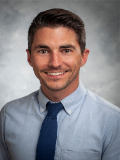
Tyler Golembiewski, PharmD
Title: Clinical Pharmacist, Pediatrics
Education: Pharm.D., Midwestern University, 2013
Training: PGY-1, Children's Minnesota, 2016
Practice Area: General Pediatrics
Research Interests: General pediatrics and cystic fibrosis
Email: Tyler.Golembiewski@aah.org
General Pediatrics Learning Experience: The activities of the experience allow the resident to build upon information acquired in their didactic education and practice skills needed for patient care, with emphasis on demonstrating an understanding of common acute and chronic medical illnesses in pediatrics and treatment of these conditions, assessing appropriateness of medications used, and demonstrating knowledge of mechanism of action, pharmacokinetics, pharmacodynamics, contraindications, interactions, and adverse reactions of medications commonly used in pediatrics. The general pediatric units consist of 44 beds. Resident responsibilities include participating in daily rounds, assisting physicians in drug selection, dosing, and monitoring, documenting medication errors, updating medication guidelines as needed, providing medication counseling and education to patients and family members and teaching resident physicians, nurses, and pharmacists.
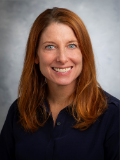
Kelly Kopec, PharmD
Title: Clinical Pharmacy Specialist, Pediatrics
Education: Pharm.D., University of Illinois at Chicago, 1994
Training: PGY-1, University of Illinois at Chicago, 1995
Practice Area: Neonatal Intensive Care Unit
Research Interests: Neonatal nutrition; optimization and adverse effects, neonatal infectious disease, neonatal pharmacokinetics
Email: kelly.kopec@aah.org
Neonatal Intensive Care Learning Experience: The neonatal intensive care unit (NICU) is a level III nursery with ECMO capability and an average daily census of 35 – 40 infants. The resident participates on rounds with a multidisciplinary team consisting of physicians, medical residents and fellows, nurses and pharmacists. During rounds the pharmacist is responsible for checking all medication orders for accuracy based on the patient’s weight, gestational age, disease state, and lab results. The resident develops evidence based therapeutic plans and ensures that appropriate short and long-term monitoring parameters are followed. Other responsibilities include responding to drug information requests, evaluating medication usage, participating in performance improvement initiatives, responding to Code Blue situations, and development of treatment pathways, educating physicians, nurses and patients as needed. Several topics are covered during the learning experience including: developmental pharmacokinetics, osteopenia of prematurity, infectious diseases in the NICU, pain management, respiratory distress syndrome and BPD, seizures, treatment of PDA, surfactants, neonatal nutrition support, prevention of RSV, apnea of prematurity, retinopathy of prematurity, causes and prevention of IVH, ECMO, necrotizing enterocolitis, prenatal HIV exposure.
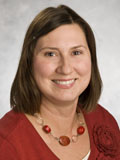
Jane Kosirog-Glowacki, PharmD
Title: Clinical Pharmacy Specialist, Hematology/Oncology
Education: Pharm.D., Creighton University, 1991
Training: PGY-1, University of Illinois at Chicago, 1992; PGY-2 Hematology/Oncology, University of Illinois at Chicago, 1993
Practice Area: Hematology/Oncology
Research Interests: prevention and management of chemotherapy-induced toxicities, hematopoietic stem cell transplant, chronic pain management, and teaching
Email: jane.kosirog-glowacki@aah.org
Adult Hematology/Oncology/BMT Learning Experience: The adult hematology/oncology/bone marrow transplant learning experience exposes the resident to a wide variety of patients. Pharmacy residents will participate in the care of a diverse patient population including but not limited to, solid and soft tissue tumors, leukemia, lymphoma, myeloma, melanoma and stem cell transplant. Patients may be receiving evaluation for initial or progressive disease, treatment with chemotherapy and/or radiation therapy, treatment for adverse effects, oncologic emergencies, febrile neutropenia, pain, nutrition, and DVT. Lutheran General Hospital has a stem cell transplant program (allogeneic, autologous), a research program with clinical trials and an oncology fellowship program for physicians. During this learning experience residents will attend rounds, provide drug information and interact with both health care professionals and patients.

Jill Starykowicz, PharmD, BCCCP
Title: PGY-2 Critical Care Residency Program Director; Clinical Pharmacy Specialist, Cardiology/Critical Care
Education: Pharm.D., University of Illinois at Chicago, 2006
Training: PGY-1, University of Illinois at Chicago, 2007; PGY-2 Cardiology, University of Massachusetts Medical Center, 2009
Practice Area: Cardiac/Medical Intensive Care Unit
Research Interests: Delirium in the medical intensive care and severe alcohol withdrawal
Email: jill.starykowicz@aah.org
Medical/Cardiac Intensive Care Learning Experience: The MCICU and Interventional Unit consists of a 32-bed unit with 10 beds devoted to cardiology and the remaining dedicated to the medical intensive care group. The learning experience is designed for pharmacy residents to develop the skills, knowledge, and values expected by a clinical pharmacy specialist practicing in critical care medicine and tailored to the resident’s previous critical care experience. Residents participate in bedside rounds with an attending physician, medical residents and interns, emergency medicine interns, palliative care physician and nurse, clinical pharmacist, respiratory therapist, clinical ethicist, and nurses. This team meets daily to discuss and optimize patient care. In addition to bedside rounds, teaching rounds occur daily to cover topic discussions and issues related to patients in the unit. Topics are presented by various attending physician who are specialists in their area of practice.
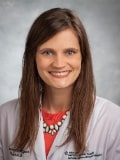
Elizabeth Hart, PharmD, BCCP
Title: Clinical Pharmacist II
Education: Pharm.D., University of Illinois at Chicago, 2017
Training: PGY-1, University of Illinois at Chicago, 2018; PGY-2 Critical Care, Advocate Lutheran General Hospital, 2019
Practice Area: Emergency Department
Email: elizabeth.eitzen@aah.org
Emergency Medicine Learning Experience:
The emergency department (ED) is a training site for emergency medicine residents from the University of Illinois at Chicago, internal medicine and family practice residents from Lutheran General, medical and pharmacy students. The department has 42 adult and 9 pediatric beds. There are approximately 71,900 visits per year resulting in approximately 17,975 inpatient admissions. During the ED learning experience, pharmacy residents conduct medication histories and perform medication discharge counseling. They serve as a resource to physicians and nurses as drug information specialists and aid in the selection and dosage of medications prescribed in the Emergency Department. Other activities performed include in-services to the ED staff, attending traumas and cardiac arrests, topic discussions, reviewing patient charts, and completion of various projects. Residents assist in the care and monitoring of critical care patients in the ED. Due to the unpredictability of the work load and patient acuity, timing and volume of activities will vary.
